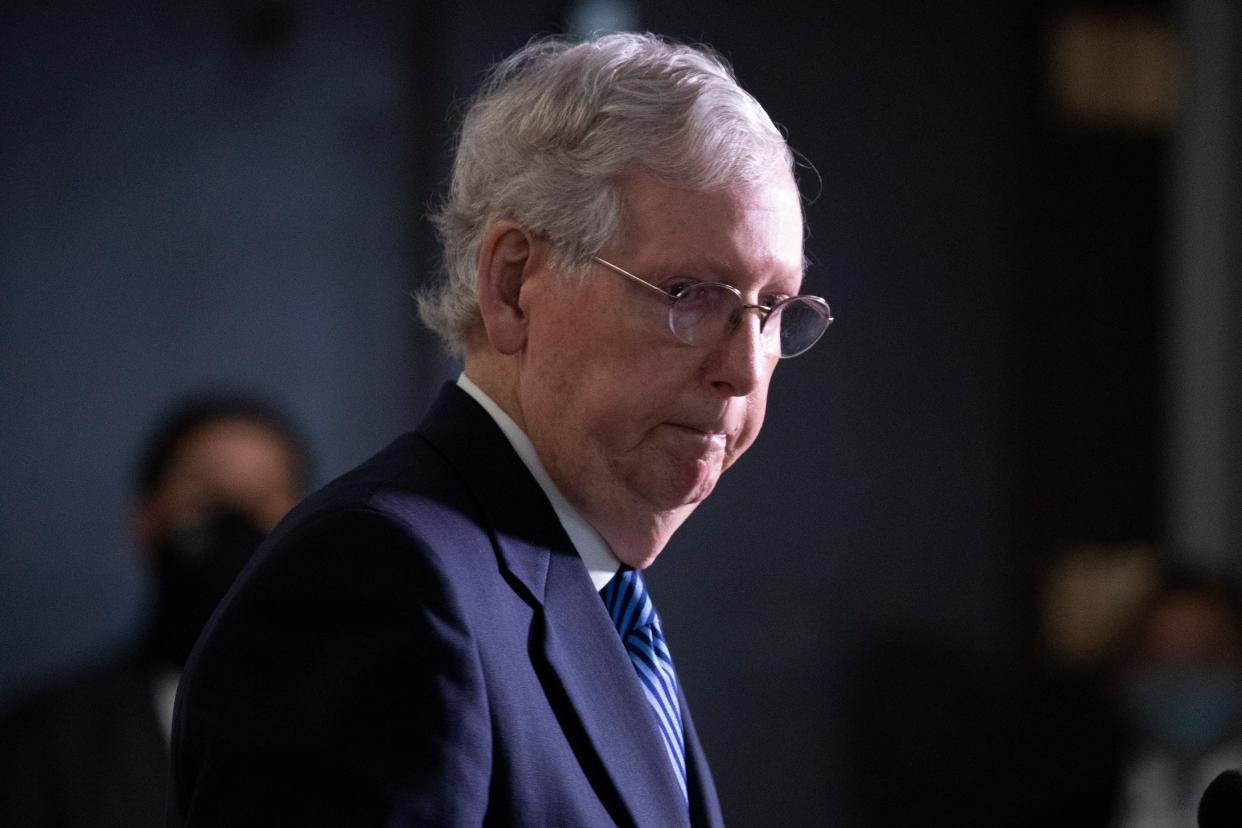Here’s what Senate Republicans said when Obama tried to confirm a Supreme Court judge in an election year

Senate Republicans may be forced to eat their own words four years after they blocked Barack Obama from filling a vacant supreme court seat in an election. The circumstances are the same — only the years, the names and the sides have changed.
In February of 2016, conservative legal giant Justice Antonin Scalia, died, leaving a space on the Supreme Court. The process is relatively straightforward: The sitting president nominates a qualified candidate, and the Senate votes to confirm with a simple majority.
But just hours after Scalia’s death, Republican Senate Majority Leader Mitch McConnell announced that he would block any such move. It was an election year, he said; the American people should have a voice in deciding who should sit on the court, and the appointment should wait until after the election. Senate Republicans joined with him in blocking the appointment.
It was an unprecedented decision, a new principle, that sparked an almighty political battle in Washington. In the end, Mitch McConnell got his way, and Merrick Garland, the moderate candidate nominated by Barack Obama, did not take a seat on the court. Instead, Donald Trump nominated and confirmed Neil Gorsuch.
Four years later, and the tables are turned. Ruth Bader Ginsburg died on Friday aged 87, leaving a space on the Supreme Court to be filled. Her death comes much closer to the election, just six weeks away.
The Republican-controlled senate now has the power to confirm a justice nominated by the current president, Donald Trump. But to do so, many would have to directly contradict their own 2016 position.
Here is what Republicans said in 2016 about appointing Supreme Court justices in an election year:
“The American people should have a voice in the selection of their next Supreme Court Justice. Therefore, this vacancy should not be filled until we have a new president.” — Sen. Mitch McConnell, 13 February 2016.
“This nomination will be determined by whoever wins the presidency in the polls.” — Sen. Mitch McConnell (R-Kentucky), 23 February 2016.
“This is the last year of a lame-duck, and if Ted Cruz or Donald Trump get to be president, they’ve all asked us not to confirm or take up a selection by president Obama. So if a vacancy occurs in their last year, of their first term, guess what, you will use their words against them. You will use their words against them. I want you to use my words against me. If there is a Republican president in 2016 and a vacancy occurs in the last year of the first term, you can say Lindsey Graham said ‘let’s let the next president, whoever it might be, make that nomination,’ and you could use my words against me and you'd be absolutely right.” — Sen. Lindsey Graham, (R-SC) 10 March, 2016
“I'll tell you this, if an opening comes in President Trump's term, and the primary process has started, we will wait until the next election.” — Lindsey Graham (R-SC), 3 October, 2018 .
“We have a unique opportunity for the American people to have a voice in the direction of the Supreme Court. Our side believes very strongly that the people deserve to be heard, and they should be allowed to decide, through their vote for the next president, the type of person who should be on the Supreme Court.” — Sen. Chuck Grassley (R-Iowa), 7 April, 2016.
“The president [Obama] exercised his unquestioned authority under the constitution, to nominate someone to this vacancy. But that same constitution reserves to the United States senate, and the United States senate alone, the right to either grant or withhold consent to that nominee.” — Sen. John Cornyn, (R-Texas). 16 March, 2016.
“Justice Scalia was an American hero. We owe it to him, & the Nation, for the Senate to ensure that the next President names his replacement.” — Ted Cruz (R-Texas) 13 February, 2016.

